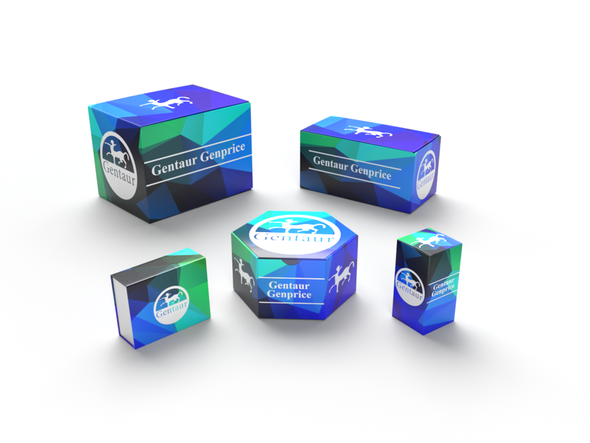Description
UMOD Antibody | 57-596 | Gentaur UK, US & Europe Distribution
Host: Rabbit
Reactivity: Human
Homology: N/A
Immunogen: This UMOD antibody is generated from rabbits immunized with a KLH conjugated synthetic peptide between 352-380 amino acids from the Central region of human UMOD.
Research Area: Cell Cycle
Tested Application: WB, IHC-P
Application: For WB starting dilution is: 1:1000
For IHC-P starting dilution is: 1:10~50
Specificiy: N/A
Positive Control 1: N/A
Positive Control 2: N/A
Positive Control 3: N/A
Positive Control 4: N/A
Positive Control 5: N/A
Positive Control 6: N/A
Molecular Weight: 70 kDa
Validation: N/A
Isoform: N/A
Purification: This antibody is purified through a protein A column, followed by peptide affinity purification.
Clonality: Polyclonal
Clone: N/A
Isotype: Rabbit Ig
Conjugate: Unconjugated
Physical State: Liquid
Buffer: Supplied in PBS with 0.09% (W/V) sodium azide.
Concentration: batch dependent
Storage Condition: Store at 4˚C for three months and -20˚C, stable for up to one year. As with all antibodies care should be taken to avoid repeated freeze thaw cycles. Antibodies should not be exposed to prolonged high temperatures.
Alternate Name: Uromodulin, Tamm-Horsfall urinary glycoprotein, THP, Uromodulin, secreted form, UMOD
User Note: Optimal dilutions for each application to be determined by the researcher.
BACKGROUND: This gene encodes uromodulin, the most abundant protein in normal urine. Its excretion in urine follows proteolytic cleavage of the ectodomain of its glycosyl phosphatidylinosital-anchored counterpart that is situated on the luminal cell surface of the loop of Henle. Uromodulin may act as a constitutive inhibitor of calcium crystallization in renal fluids. Excretion of uromodulin in urine may provide defense against urinary tract infections caused by uropathogenic bacteria. Defects in this gene are associated with the autosomal dominant renal disorders medullary cystic kidney disease-2 (MCKD2) and familial juvenile hyperuricemic nephropathy (FJHN) . These disorders are characterized by juvenile onset of hyperuricemia, gout, and progressive renal failure. While several transcript variants may exist for this gene, the full-length natures of only two have been described to date. These two represent the major variants of this gene and encode the same isoform.






![UMOD Antibody (Center) [APR03934G] UMOD Antibody (Center) [APR03934G]](https://cdn11.bigcommerce.com/s-1rdwiq712m/images/stencil/590x590/products/55922/56226/gentaur-genprice__26005.1661610467__29809.1661628092__75433.1661676199__77988.1661684280__64362.1661692443__98236.1661836768.png?c=1)